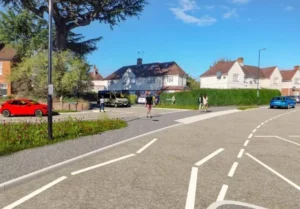The Government is developing a monitoring and evaluation strategy for its Levelling Up Fund delivery.
It is currently developing the plan for the overarching programme evaluation and we intend to carry out a feasibility study to fully assess the options for impact and value for money evaluations. The following section sets out the aims of the programme-level evaluation and our proposals for developing these plans further in the coming months.
Monitoring will be used to track the progress of projects and to identify where additional support may be necessary throughout the programme. The monitoring data collected will enable the department to check progress against project milestones, ensure funding is being spent according to agreed terms, and that the agreed outputs are being delivered. This activity will also aim to identify who is benefitting from the programme. The data collected will also feed into the programme’s process, impact, and value for money evaluations.
LUF will fund projects across the UK, taking place-based approaches across thematic areas of intervention. In Round 1 of LUF 105 places received funding, with more places to receive funding in future rounds. Therefore, there are multiple levels at which we could evaluate LUF, ranging from place-based evaluations of individual schemes (carried out by local authorities and other scheme promotors), thematic evaluations (e.g. focusing on groups of similar interventions to improve our understanding of what works), to potentially assessing the impact and the effectiveness of delivery at the programme-level. Local authorities are required to report monitoring data to central government and carry out their own place-based evaluations.
LUF recipients will be required to report on inputs, activities and outputs until project completion at the earliest but, for some indicators – particularly outcomes – we may require collection and reporting of data for several years post-project completion. As each project’s circumstances are unique, we will agree the terms with each recipient once their projects have been confirmed.
The process evaluation aims to understand how LUF was delivered in areas which received funding. It will generate lessons on what worked well and what did not work as intended, which will feed into continuous improvement of subsequent rounds of delivery. These lessons learnt will also be used to inform policy design and delivery of other funds. Further scoping work will be carried out to specify the methodology for the process evaluation, and a broad outline of the intended approach is provided below.
























